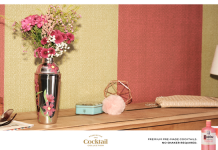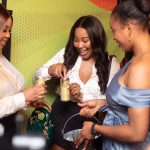GODDIE OFOSE, Lagos
In spite of the controversies surrounding the safety of two soft drinks brands, Fanta and Sprite, from the stable of the Nigerian Bottling Company (NBC), in the past few weeks, checks with a cross-section of the brands’ consumers have revealed that the two soft drinks brands still enjoy sizable patronage and loyalty among the consumers, according to polls conducted by foreign and local media.
In an opinion poll conducted by CNN Africa on Twitter tagged Nigerians, are you still drinking Fanta and Sprite after this high court ruling? monitored by Brands & Marketing, a huge number of consumers would still prefer to pitch their tents with the two soft drinks brands, insisting that they were not bothered by the controversies surrounding the drinks.
For instance, while 61 percent of the respondents were in the Yes, doesn’t bother me category, 39 percent of the respondents insisted they would have a second thought before fraternizing with the products.
Interestingly, this level of loyalty enjoyed by the brands is, again, reinforced by a cross-section of consumers who spoke with Brands & Marketing on the issue.
Some of the consumers expressed the belief that the ‘undue assaults’ the two brands had been facing from some quarters, especially on the social media space, in the past few weeks, should not be taken as representing the collective reactions of their consumers, but that of a leadership price.
For instance, Kelvin Anthony, an entrepreneur, and an ardent consumer of Fanta, believes it would be foolhardy to believe that those two leading brands, that had been in the market for decades, would decide overnight to ‘rubbish’ such achievement by not playing by the rules, as being claimed in some quarters.
He argued that the controversies had not really reduced his interest and those of his family members in the Fanta drink; since it has a rich tradition that thrives on quality and strict adherence to the rules.
![]()
![]()
Another consumer, Joyce Uwadiae, would however want Nigerians to exercise caution in the way they pursue their consumer rights activism.
“While not holding brief for any company, but I remember there was a time the Indomie Noodles brand was nearly outlawed in this country when some people came up with some phantom claims that the popular noodles brand was injurious to health.
“If not for the meticulous job carried out by NAFDAC then, the brand would have been out of circulation by now, and what would have happened, its consumers would have been denied that option, while employees of the company would simply have been asked to go, just because of a phantom claim. I think the lesson in all these is to exercise caution and restraint when dealing with issues of this nature because the whole world is watching,” she argued.
A food nutritionist, Jide Omololu would rather describe the recent outcry on the Benzoic Acid levels in the two soft drinks brands as amounting to ‘crying wolves where there are none’.
“For me, the bottlers of these brands have never, in any way, erred. It has not gone against any rules. When you talk of Benzoic Acid levels, it is simply a case of different strokes for different folks.
“For instance, it is not out of place to discover that the recommended amounts of Benzoic Acid (preservatives) in those two brands are different from what obtain in the UK. And a lot of factors, including country’s temperature, storage and distribution conditions are always taken into consideration before arriving at these levels. So why this fuss?” he asked.
Both Fanta and Sprite have benzoic levels of 200 mg/kg, which is lower than the Nigerian regulatory limit of 250 mg/kg when combined with ascorbic acid and 300 mg/kg without ascorbic acid and also lower than the 600 mg/kg international limit set by CODEX.
Mrs. Popoola, a soft drinks seller, however corroborated the claim that the drinks had continued to enjoy unflinching patronage, in spite of the outrage.
“I can’t remember any consumer coming into the shop and turning down any of these brands, just because of these controversies. My sales on the drinks, have never, in any way, been impacted negatively,” she stated.











































